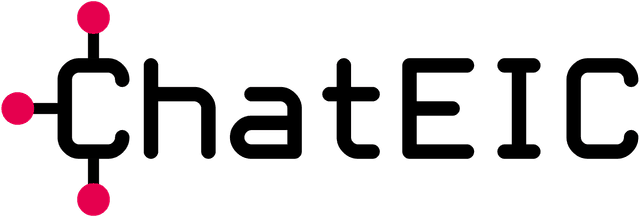
EIC Accelerator Step 1 is Closing (2025, 2026)
Some of you might have received an email from the European Commission notifying you that the Step 1 call for the EIC Accelerator is going to close on October 28th instead of the planned December date.
Here's a clarification as to why this happened.
Grand Opening, Grand Closing
Normally, the Step 1 call is open for the entire year because the monthly deadline that occurs on the first Tuesday of every month is an internal deadline used to batch the evaluations while the overall deadline is for the entire year when the call is actually open.
Closing the call usually means that the EIC is preparing to launch the 2026 Step 1 call early. This exact same thing happened last year as well. The Step 1 call for 2024 was closed early (October 22nd 2024 instead of the planned December date) and the 2025 call opened already on October 29th, 2024.
I therefore expect that the 2026 call for the EIC Accelerator Step 1 is going to open very soon after the closure.
So what exactly should you do now if you are currently preparing your Step 1 proposal?
Change is a Constant
Well, there are two options. Either you apply before October 28th and you can submit the proposal exactly as you've prepared it, or you wait until after October 28th and observe if the template for Step 1 has changed, which is a possibility considering that the call is going to reopen. Template changes are a very common occurrence.
So it is quite likely that there are going to be some changes to the template.
If any changes do occur, then ChatEIC will be updated as well right afterwards.
Other Notes: Websites and Pitch Decks
Two things that I commonly notice among startups are that many still don't have a proper website or pitch deck. This is a shame because startups are very heavily judged on these two since they literally present what the company is about. They're supposed to be a visual representation of the technology, the mission and what they're trying to accomplish.
I frequently see:
Websites
- Companies that use Gmail and don't have their own custom domain.
- Domain names that are parked without even a landing page.
- Archaic landing pages made with WordPress.
Pitch Decks
- Decks that read more like a document, are full of text and have no design elements.
- Presentations that look like the default templates from the early 2000s.
- Poor structure that doesn't address all the aspects that the commercial pitch deck should have (competitors, market, financials, investments).
Nowadays, there's no excuse for any of the above because AI can help you polish up both the website and the pitch deck. You can use Lovable or Cursor AI to quickly create a good-looking landing page and host it on a custom domain for almost free (see Vercel, Supabase). There are many AI tools for pitch decks, for example, Gamma or Genspark AI.
It was never this easy to look like a VC-funded startup on the surface, so don't miss this opportunity.
Get Support
Need help with the EIC Accelerator or other grants? Here are some options:
- Starter Pack (lowest-risk entry with AI writer): The Starter Pack contains all the templates you will need and detailed instructional modules in video and text form. This is a very comprehensive package that will tell you everything you need to know based on previously successful applications. This includes free credits for ChatEIC, the EIC Accelerator AI writer. Learn more about the Starter Pack.
- Advisory (personalized support): You write in-house but receive personal 1-on-1 support from me, templates, instructions, and reviews of all documents. Personal strategy calls and reviews to perfect every section. This also includes an AI tool for Step 1 as well as guidance on using AI for the proposal writing. Strategy calls cover the specific templates as well as the EIC criteria and use of AI tools. Pitch coaching for the interviews and support for all resubmissions are included as well. Learn more about the Advisory service.
- Writing (complete end-to-end service): All proposal sections are written for you and submitted on your behalf with minimum input from your side. Pitch coaching for the interviews and support for all resubmissions are included as well. Learn more about the Writing service.
- Review (personal review): Get a personal review of your grant proposal with detailed comments. Learn more about the Review service.
- Quick Writing (professional Step 1 proposal): 50% off on a professional Step 1 proposal from an expert consultant with the help of AI. Learn more about the Quick Writing service.
Other resources:
- Subsdy: Looking for the perfect grant opportunity in the EU? There are about 1,000 active grants and tenders (usually multiple added a day!), so feel free to try out Subsdy, the AI tool for grant discovery.
- Subsdy News: Find the newest Grant Updates here: Subsdy News
Sharing: Recommend this newsletter to a friend: Newsletter
These tips are not only useful for European startups, professional writers, consultants and Small and Medium-Sized Enterprises (SME) but are generally recommended when writing a business plan or investor documents.
Deadlines: Post-Horizon 2020, the EIC Accelerator accepts Step 1 submissions now while the deadlines for the full applications (Step 2) under Horizon Europe are listed below. The Step 1 applications must be submitted weeks in advance of Step 2. The next EIC Accelerator cut-off for Step 2 (full proposal) can be found here. After Brexit, UK companies can still apply to the EIC Accelerator under Horizon Europe albeit with non-dilutive grant applications only - thereby excluding equity-financing. Switzerland has resumed its participation in Horizon Europe and is now eligible for the EIC Accelerator.
EIC Accelerator Step 1 Deadline 2025
Contact: You can reach out to us via this contact form to work with a professional consultant.
AI Grant Writer: ChatEIC is a fully automated EIC Accelerator grant proposal writer: Get it here.
EIC Accelerator: EIC Accelerator delivers flexible funding options including blended finance (€2.5M grant + €0.5M-€10M equity), grant-only (up to €2.5M), or equity-only arrangements for scale-up and market deployment of breakthrough innovations. The initiative targets SMEs, start-ups, and small mid-caps with up to 499 employees. Technology areas include Biotech, Engineering, Artificial Intelligence, Energy, Quantum, Aerospace, Advanced Materials, and Semiconductors. Get Started
EIC Pathfinder: EIC Pathfinder delivers up to €3 million for Open calls and up to €4 million for Challenge-based calls to support early-stage research and development with proof-of-principle validation. The initiative requires research consortia with a minimum of 3 partners from 3 different countries, including universities, research organizations, and SMEs. Primary technology focus areas include Health/Medical, Quantum Technologies, AI, Environmental/Energy, and Advanced Materials. Get Started
EIC Transition: EIC Transition delivers up to €2.5 million in funding to overcome the 'valley of death' gap between laboratory research and market deployment, emphasizing technology maturation and validation. The initiative supports single legal entities or small consortia of 2-5 partners including SMEs, start-ups, spin-offs, and research organizations. Key technology domains include Health/Medical Technologies, Green/Environmental Innovation, Digital/Microelectronics, Quantum Technologies, and AI/Robotics. Get Started
EIC STEP Scale-Up: EIC STEP Scale-Up delivers significant equity investments of €10-30 million for established deep-tech companies prepared for hyper-growth and large-scale expansion. The initiative targets SMEs or small mid-caps with up to 499 employees who have obtained pre-commitment from qualified investors. Primary focus areas include Digital & Deep Tech (Semiconductors, AI, Quantum), Clean Technologies for Net-Zero objectives, and Biotechnologies. Get Started
EIC Pre-Accelerator: EIC Pre-Accelerator represents a pilot initiative delivering €300,000-€500,000 in funding for early-stage deep-tech development and preparation for the EIC Accelerator program. This program is exclusively accessible to single SMEs or small mid-caps from 'Widening countries' to foster regional innovation development. The initiative encompasses deep-tech innovations across physical, biological, and digital domains. Get Started
EIC Advanced Innovation Challenges: EIC Advanced Innovation Challenges represents a new pilot initiative delivering €300,000 (Stage 1) and up to €2.5 million (Stage 2) for breakthrough deep-tech innovations through ARPA-style staged funding mechanisms with integrated demand-side engagement. This initiative targets single entities or small consortia (2-3 partners) including SMEs, start-ups, and research organizations. Primary focus areas include Physical AI for autonomous robotics applications and New Approach Methodologies (NAMs) for animal-free biomedical testing, with TRL 4 entry requirements and demonstrated end-user commitment. Get Started
Eureka Network: The Eureka Network delivers various international collaborative R&D initiatives such as Network Projects, Clusters, Eurostars, Globalstars, and Innowwide, providing funding from €50K to €6.75M per project based on the specific initiative. This network emphasizes market-driven innovation and deep-tech advancement across multiple technology sectors including ICT/Digital, Industrial/Manufacturing, Bio/Medical Technologies, Energy/Environment, Quantum, AI, and Circular Economy. Eligible participants include SMEs, large enterprises, research organizations, universities, and startups, with Eurostars particularly focused on R&D-performing SMEs. Get Started
Eurostars: Eurostars represents a joint EU-Eureka initiative delivering €50K-€500K for international R&D collaboration specifically led by SMEs. The program adopts a bottom-up approach, accepting projects from all technology fields without predefined thematic restrictions. R&D-performing SMEs must lead the consortium and demonstrate significant R&D activities. Get Started
Innovation Partnership: Innovation Partnership enables collaborative innovation between public and private sectors with typical funding of €1-5 million per project. The initiative supports cross-sectoral strategic technologies through public-private partnerships and consortia. Projects concentrate on addressing societal challenges through collaborative innovation approaches. Get Started
Innovation Fund: The EU Innovation Fund delivers substantial funding of €7.5 million to €300 million for large-scale demonstration of innovative low-carbon technologies. The initiative targets clean energy, carbon capture, renewable energy, and energy storage technologies to accelerate the transition to a low-carbon economy. Eligible participants include large companies, consortia, and public entities capable of implementing large-scale demonstration projects. Get Started
Innovate UK: Innovate UK delivers various programs with funding ranging from £25K to £10M depending on the specific initiative, supporting business-led innovation, collaborative R&D, and knowledge transfer. The organization funds projects across all sectors with particular emphasis on emerging technologies and supports UK-based businesses, research organizations, and universities. Programs are designed to drive economic growth through innovation and technology commercialization. Get Started
Industrial Partnership: Industrial Partnership delivers €2-10 million in funding for industrial research and innovation partnerships focusing on manufacturing, industrial technologies, and digital transformation. The initiative supports industrial consortia and research organizations in developing collaborative solutions for industrial challenges. Projects aim to strengthen European industrial competitiveness through strategic partnerships. Get Started
LIFE Programme: The LIFE Programme delivers €1-10 million in funding for environmental protection, climate action, and nature conservation projects across the European Union. The initiative supports environmental technologies, climate adaptation strategies, and biodiversity conservation initiatives. Eligible participants include public authorities, private companies, NGOs, and research institutions working on environmental and climate challenges. Get Started
Neotec: Neotec represents a Spanish initiative delivering €250K-€1M in funding for technology-based business creation and development, supporting the growth of innovative Spanish SMEs and start-ups. The program covers all technology sectors and aims to strengthen Spain's technology ecosystem. Funding is specifically targeted at Spanish technology-based SMEs and start-ups to enhance their competitiveness and market presence. Get Started
Thematic Priorities: EU Thematic Priorities encompass various programs aligned with EU strategic priorities including green transition, digital transformation, health, and security initiatives. Funding amounts vary based on the specific program and call requirements, with projects designed to address key European challenges. Applicant eligibility varies by specific program and call, with different requirements for different thematic areas. Get Started
Any more questions? View the Frequently Asked Questions (FAQ) section.
Want to see all articles? They can be found here.
For Updates: Join this Newsletter!
